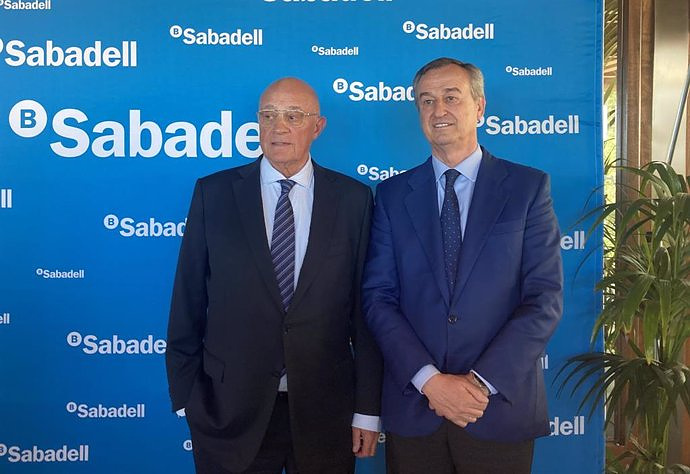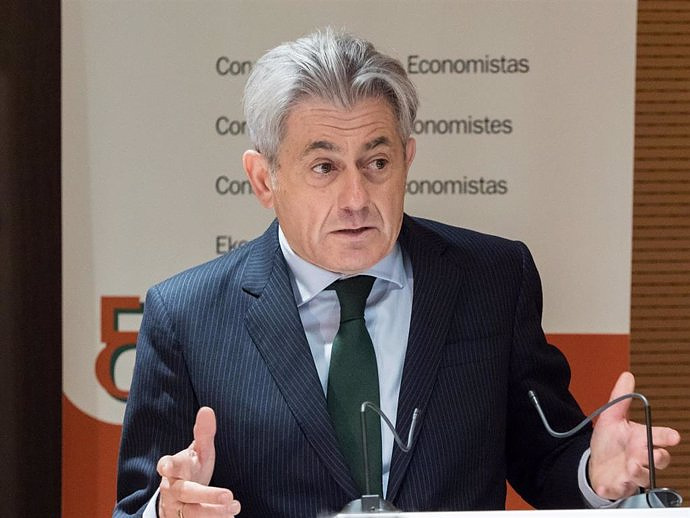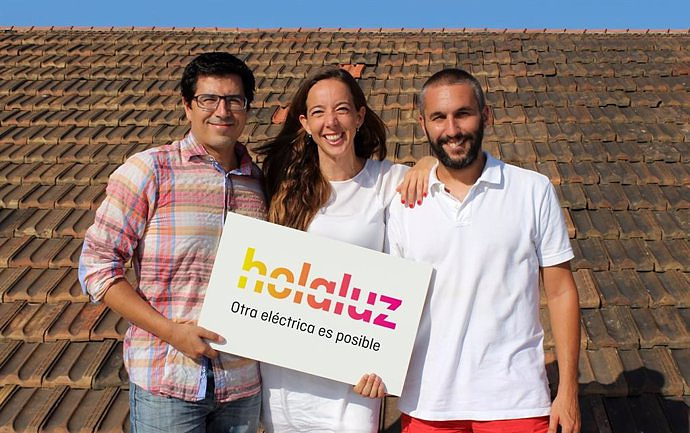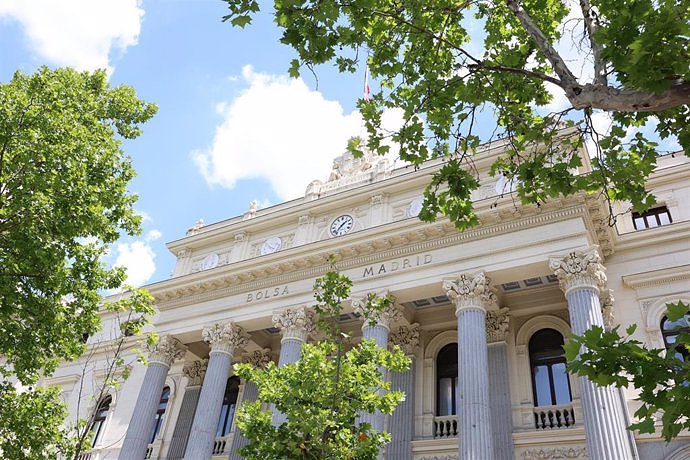In his book 'Witness of a time', which Rajoy will present, he hopes that Feijóo will turn the PP into the alternative that Spain needs
MADRID, 12 Jun. (EUROPA PRESS) -
The former MEP and former parliamentary spokesman for the Popular Group in Congress, Luis de Grandes, already opted for Alberto Núñez Feijóo in June 2018 as soon as Mariano Rajoy's resignation was confirmed after the motion of censure and told the then secretary general of the PP María Dolores de Cospedal that "the best role" she could play was to promote from the party "the candidacy of unity" around Alberto Núñez Feijóo.
"After three years, what I believed as a personal leadership solution has been possible and it seems to me that it will be good for everyone," says De Grandes in his book 'Witness of a time' (Almuzara) focused on "the history of the center-right Spanish from Adolfo Suárez to Mariano Rajoy". In fact, the latter will present the work next Wednesday together with former Minister of Labor Manuel Pimentel, president of this publishing house specializing in political thought.
Luis de Grandes (Guadalajara, 1945) told Cospedal in the conversations they had after the Executive Committee of the PP on June 5 -in which Rajoy's goodbye was confirmed- that she had a "special responsibility" and he encouraged her to promote a candidacy around Feijóo, who in his opinion could "raise the unity of all".
"A position of that tenor, would enhance your figure and would avoid the dispersion of candidacies that are not to your liking," he reveals that he then transferred Cospedal, who, in his opinion, "did not reject the idea." "And I think he tried without success," he adds in the book.
De Grandes - a deputy in the Cortes for seven legislatures, including the Constituent Assembly, and then a deputy in the European Parliament for fifteen years - considers that time has proved him right regarding the "suitability" of Feijóo, who "had his reasons to circumvent his candidacy" and he respects them.
The one who was spokesman for the Popular Group in Congress between 1996 and 2000 considers that Cospedal was "generous and did not use his position in the party for his benefit." What's more, he points out that the former defense minister also "didn't give up her efforts to find consensus formulas that will avoid confrontation." "I suggested that she seek a pact with Soraya and she tried it. The result was null," she says.
In fact, he reveals in the book the conversation he had with her about that contact with the former Vice President of the Government. "How was the meeting?" I asked. "Nothing, Luis, the answer, generals of the law, has not offered anything."
In his book, De Grandes recounts more details of that extraordinary congress of the PP -- he was appointed president of the Organized Committee (COC) -- and which was finally attended by six candidates: Emilio Cabanes, Pablo Casado, María Dolores de Cospedal, José Ramón García Hernández, José Manuel Margallo and Soraya Sáenz de Santamaría.
In the vote of the militants, Santamaría and Casado won. "After the defeat, Dolores saw how her squad, disoriented and without a slogan, made her own decisions, and she agreed with Casado," she says. The victory in that extraordinary conclave in July was finally for the second, which prevailed over the former Vice President of the Government in the vote of the delegates.
Luis de Grandes considers that the primary system included in the PP Statutes is "at least, improvable". "The two-stage primaries contain many traps, and more than legitimate concurrences, they produce confrontations with 'political blood'."
Apart from the requirements demanded in the Statutes -which he sees as "a suit tailored to Rajoy with the inconvenience that he could no longer go through the tailor shop--, he admits that it was difficult to explain to public opinion how after boasting that the PP was the "largest party in Europe with half a million members, only seventy thousand participated".
"The truth is that I had to do dialectical bobbin lace to explain the fact without lying. In my opinion, a distinction should be made between the list of people who do not care about being on a list and receiving information, from the real militancy who pays a fee and is willing to participate in decisions when appropriate".
De Grandes considers that Rajoy "should not leave through the back door" after the "destructive" motion of censure and should be fired "with honours", for which he proposed a conclave in two stages and in two days to achieve that purpose. "My greatest concern when organizing the Extraordinary Congress was to preserve the prestige of the PP," he stresses.
The former spokesman for the Popular Group during the Aznar government assures that he "fully" trusts Feijóo to "restore the pride of belonging" to the PP, "support the new leaderships in presence and turn the PP back into the alternative that Spain needs" .
In addition, he asks to join forces so that "the enemies of constitutional Spain do not succeed in undermining the principles that the constituents" reflected in article 2 of the Magna Carta. "To the extent that, as a constituent, you can invoke the authentic interpretation, I think that in this text if there is something that is unequivocally clear, it is the indivisibility of Spain," he concludes.

 Exploring Cardano: Inner Workings and Advantages of this Cryptocurrency
Exploring Cardano: Inner Workings and Advantages of this Cryptocurrency Seville.- Economy.- Innova.- STSA inaugurates its new painting and sealing hangar in San Pablo, for 18 million
Seville.- Economy.- Innova.- STSA inaugurates its new painting and sealing hangar in San Pablo, for 18 million Innova.- More than 300 volunteers join the Andalucía Compromiso Digital network in one month to facilitate access to ICT
Innova.- More than 300 volunteers join the Andalucía Compromiso Digital network in one month to facilitate access to ICT Innova.-AMP.- Ayesa acquires 51% of Sadiel, which will create new technological engineering products and expand markets
Innova.-AMP.- Ayesa acquires 51% of Sadiel, which will create new technological engineering products and expand markets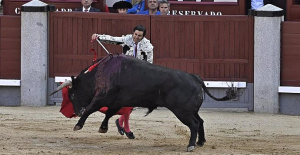 The Community will provide facilities and support to the Bullfighting Prize with the help of the Toro de Lidia Foundation
The Community will provide facilities and support to the Bullfighting Prize with the help of the Toro de Lidia Foundation Page will contact the bullfighting sector to create, from C-LM, Bullfighting Awards that will have national reach
Page will contact the bullfighting sector to create, from C-LM, Bullfighting Awards that will have national reach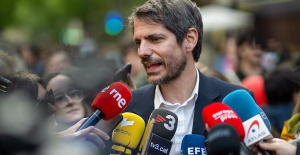 Urtasun, on eliminating the National Bullfighting Award: "The majority of Spaniards support the decision I have made"
Urtasun, on eliminating the National Bullfighting Award: "The majority of Spaniards support the decision I have made"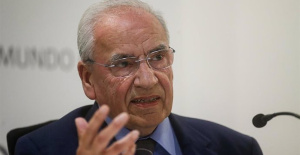 Alfonso Guerra sees Sánchez in an "autocratic" drift and accuses him of generating division "between the two Spains"
Alfonso Guerra sees Sánchez in an "autocratic" drift and accuses him of generating division "between the two Spains" How Blockchain in being used to shape the future
How Blockchain in being used to shape the future Not just BTC and ETH: Here Are Some More Interesting Coins Worth Focusing on
Not just BTC and ETH: Here Are Some More Interesting Coins Worth Focusing on The Generalitat calls for aid worth 4 million to promote innovation projects in municipalities
The Generalitat calls for aid worth 4 million to promote innovation projects in municipalities UPV students design an app that helps improve the ventilation of homes in the face of high temperatures
UPV students design an app that helps improve the ventilation of homes in the face of high temperatures Ivace and promotes a less invasive device for the early detection of prostate cancer
Ivace and promotes a less invasive device for the early detection of prostate cancer Valencia unanimously approves the ordinance to allocate spaces to test innovative initiatives
Valencia unanimously approves the ordinance to allocate spaces to test innovative initiatives A million people demonstrate in France against Macron's pension reform
A million people demonstrate in France against Macron's pension reform Russia launches several missiles against "critical infrastructure" in the city of Zaporizhia
Russia launches several missiles against "critical infrastructure" in the city of Zaporizhia A "procession" remembers the dead of the Calabria shipwreck as bodies continue to wash up on the shore
A "procession" remembers the dead of the Calabria shipwreck as bodies continue to wash up on the shore Prison sentences handed down for three prominent Hong Kong pro-democracy activists
Prison sentences handed down for three prominent Hong Kong pro-democracy activists ETH continues to leave trading platforms, Ethereum balance on exchanges lowest in 3 years
ETH continues to leave trading platforms, Ethereum balance on exchanges lowest in 3 years Investors invest $450 million in Consensys, Ethereum incubator now valued at $7 billion
Investors invest $450 million in Consensys, Ethereum incubator now valued at $7 billion Alchemy Integrates Ethereum L2 Product Starknet to Enhance Web3 Scalability at a Price 100x Lower Than L1 Fees
Alchemy Integrates Ethereum L2 Product Starknet to Enhance Web3 Scalability at a Price 100x Lower Than L1 Fees Mining Report: Bitcoin's Electricity Consumption Declines by 25% in Q1 2022
Mining Report: Bitcoin's Electricity Consumption Declines by 25% in Q1 2022 Oil-to-Bitcoin Mining Firm Crusoe Energy Systems Raised $505 Million
Oil-to-Bitcoin Mining Firm Crusoe Energy Systems Raised $505 Million Microbt reveals the latest Bitcoin mining rigs -- Machines produce up to 126 TH/s with custom 5nm chip design
Microbt reveals the latest Bitcoin mining rigs -- Machines produce up to 126 TH/s with custom 5nm chip design Bitcoin's Mining Difficulty Hits a Lifetime High, With More Than 90% of BTC Supply Issued
Bitcoin's Mining Difficulty Hits a Lifetime High, With More Than 90% of BTC Supply Issued The Biggest Movers are Near, EOS, and RUNE during Friday's Selloff
The Biggest Movers are Near, EOS, and RUNE during Friday's Selloff Global Markets Spooked by a Hawkish Fed and Covid, Stocks and Crypto Gain After Musk Buys Twitter
Global Markets Spooked by a Hawkish Fed and Covid, Stocks and Crypto Gain After Musk Buys Twitter Bitso to offset carbon emissions from the Trading Platform's ERC20, ETH, and BTC Transactions
Bitso to offset carbon emissions from the Trading Platform's ERC20, ETH, and BTC Transactions Draftkings Announces 2022 College Hoops NFT Selection for March Madness
Draftkings Announces 2022 College Hoops NFT Selection for March Madness




